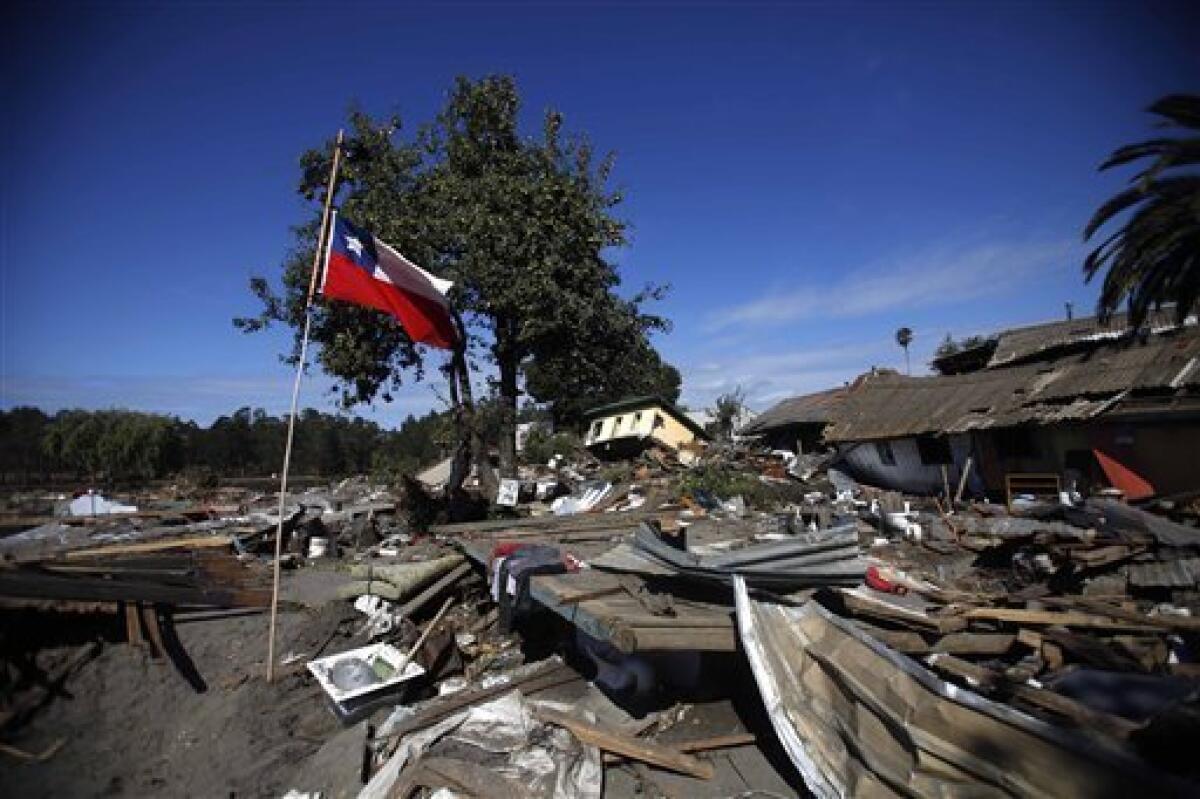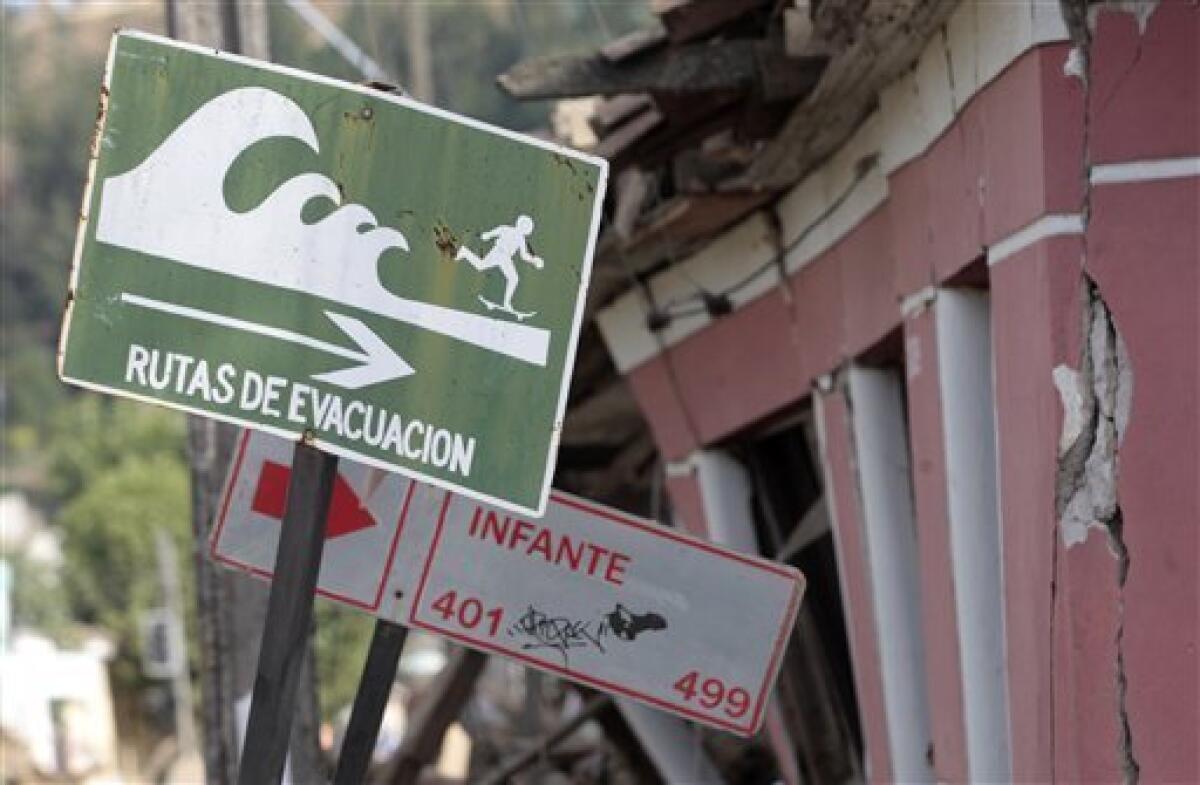Chile earthquake may have shortened Earth’s day


Earth’s days may have gotten a little bit shorter since the massive earthquake in Chile, but don’t feel bad if you haven’t noticed.
The difference would be only about one-millionth of a second.
Richard Gross, a scientist at NASA’s Jet Propulsion Laboratory in Pasadena, Calif., and colleagues calculated that Saturday’s quake shortened the day by 1.26 microseconds. A microsecond is one-millionth of a second.
The length of a day is the time it takes for the planet to complete one rotation - 86,400 seconds or 24 hours.
An earthquake can make Earth rotate faster by nudging some of its mass closer to the planet’s axis, just as ice skaters can speed up their spins by pulling in their arms. Conversely, a quake can slow the rotation and lengthen the day if it redistributes mass away from that axis, Gross said Tuesday.
Gross said the calculated changes in length of the day are permanent. So a bunch of big quakes could add up to make the day shorter, “but these changes are very, very small.”
So small, in fact, that scientists can’t record them directly. Gross said actual observations of the length of the day are accurate to five-millionths of a second. His estimate of the effect of the Chile quake is only a quarter of that span.
“I’ll certainly look at the observations when they come in,” Gross said, but “I doubt I’ll see anything.”
--
On the Net: